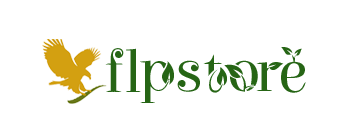The natural solution to infectious diseases.
The natural solution to infectious diseases: Infectious diseases pose a common challenge that many people worldwide encounter. These diseases are triggered by detrimental microorganisms such as bacteria, viruses, fungi, and parasites, which can impact various body systems, including the integumentary, respiratory, urinary, and digestive systems. Diverse Types of Infections Include: Bacterial Infections: Bacterial infections stem from bacteria and can encompass a wide spectrum of maladies, ranging from minor skin infections to severe conditions like sepsis. Typical bacterial infections encompass strep throat, urinary tract infections, and pneumonia. Signs of bacterial infections can involve: Elevated body temperature (fever) Chills Profound fatigue Pain (e.g., abdominal, ear, or joint pain) Swelling or redness at the injection site Nausea or vomiting Altered bowel habits (diarrhea or constipation) Respiratory difficulties Coughing Chest discomfort Symptoms of bacterial infections can vary depending on the specific type of infection and the affected bodily region. For instance, a urinary tract bacterial infection may cause discomfort or a burning sensation during urination, while a skin bacterial infection may lead to redness, swelling, and the formation of pus-filled blisters. Prompt medical attention is essential in cases of bacterial infection, as some can be life-threatening without treatment. Viral Infections: Viral infections are instigated by viruses, giving rise to a broad array of ailments, from the common cold to more severe conditions like HIV and COVID-19. Signs of viral infections can encompass: Fever Cough Sore throat Runny or congested nose Muscle aches Fatigue Headache Nausea or vomiting Diarrhea Skin eruptions Symptoms of viral infections are contingent on the specific viral strain and the affected body system. For example, a respiratory viral infection may result in coughing, while a viral gastrointestinal infection may lead to nausea and vomiting. Seeking medical attention is crucial when signs of a viral infection manifest, particularly if the individual has a compromised immune system or experiences severe symptoms. Fungal Infections: Fungal infections are initiated by fungi and can influence diverse bodily regions, including the epidermis, nails, and respiratory system. Common fungal infections comprise athlete’s foot, thrush, and ringworm. Symptoms of fungal infections may encompass: Pruritus (itching) Redness Cutaneous irritation Scaling or flaking of the skin Epidermal cracking or peeling Thickening or discoloration of the nails Respiratory difficulties Coughing Chest discomfort Fever. Indications of fungal infections differ contingent on the specific fungal strain and the affected anatomical area. For example, a cutaneous fungal infection might lead to redness and itching, while a respiratory fungal infection may result in breathing difficulties and chest pain. Swift medical attention is imperative when fungal infection symptoms arise Parasitic Infections: Parasitic infections arise from parasites and can influence various body systems, including the digestive tract and the integument. Common parasitic infections include malaria, giardiasis, and scabies. Signs of parasitic infections can encompass: Fever Nausea or vomiting Altered bowel habits (diarrhea or constipation) Abdominal pain or cramps Profound fatigue Weight loss Cutaneous rash or pruritus Muscular aches or joint discomfort Coughing Breathlessness. Seeking Timely Medical Care: Symptoms of parasitic infections, similar to other types of infections, can vary depending on the specific infection and the affected bodily region. It is of paramount importance to seek medical attention if any signs of infection become evident, particularly if an individual has a weakened immune system or experiences severe manifestations. Causes of Infections: Inhaling Airborne Germs Contact with Contaminated Surfaces Ingesting Contaminated Food or Water Contact with Infected Animals Sexual Contact with an Infected Person Insect or Animal Bites Mother-to-child transmission During Pregnancy, Childbirth, or Breastfeeding Weakened Immune System Due to Illness or Medication The specific microorganism causing the infection determines the type of infection and the affected bodily region. If an infection is suspected, prompt medical attention is crucial for accurate diagnosis and treatment. Complications: Untreated or improperly managed infections can give rise to various complications contingent on the type of infection and the affected bodily region. Common complications of infections comprise: Sepsis: A life-threatening condition ensuing from the body’s response to infection, which leads to systemic inflammation, organ damage, and failure. Pneumonia: A severe lung infection causing breathing difficulties, chest pain, and fever. Meningitis: An infection of the membranes encompassing the brain and spinal cord, resulting in severe headaches, fever, and neck stiffness. Pelvic Inflammatory Disease (PID): An infection of the female reproductive organs, which can lead to infertility and chronic pelvic pain. Hepatitis: A liver infection potentially causing liver damage, failure, and cancer. Encephalitis: A brain infection associated with fever, headache, confusion, and seizures. Rheumatic Fever: A complication of untreated strep throat that can cause inflammation Preventing Infections: Preventing infections entails the practice of proper hygiene and the maintenance of a healthy lifestyle. Here are some recommendations to aid in infection prevention: Regular Handwashing: Employ soap and water for thorough handwashing, lasting at least 20 seconds, particularly before meals, after using the restroom, and after coughing or sneezing. Respiratory Hygiene: Employ a tissue or your elbow to cover your mouth and nose when coughing or sneezing to prevent the transmission of germs to others. Avoid Close Contact: Steer clear of individuals who are unwell and evade crowded areas during the flu season. Vaccination: Embrace vaccines available for numerous infectious diseases, including influenza, measles, and COVID-19. Safe Sexual Practices: Employ condoms to thwart the transmission of sexually transmitted infections. Food Safety: Diligently wash fruits and vegetables, cook meat and eggs to the recommended temperatures, and refrain from consuming undercooked or raw food. Personal Item Non-Sharing: Do not share personal items like toothbrushes, razors, and towels, as they may propagate germs. Healthy Lifestyle: Sustain a balanced diet, get adequate rest, and engage in regular exercise to support a robust immune system. By adhering to these guidelines, you can contribute to the prevention of infections and reduce the likelihood of falling ill. Treatments for Infection: Treatment for an infection hinges on the specific type of infection and the affected bodily region. Here are typical treatments for distinct infection types: Bacterial Infections: Frequently, antibiotics are administered to combat bacterial infections. These medications either kill bacteria or inhibit their growth. Completing






